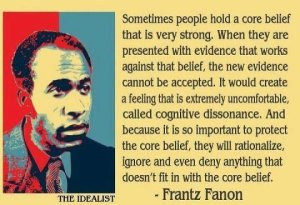
That’s Timothy B. Reid’s argument. Them, it’s Congolese. And they, are countries, particularly Western, and mainly US and Britain, which for years have been fuel-ling wars in Central Africa, and especially in the Democratic Republic of Congo [DRC].
The author in his contribution to a research work of the Humanitarian Tragedy in the DRC states how countries that significantly finance national budgets of Rwanda and Uganda could’ve stopped, or end even today the suffering of Congolese people, if they wanted to.
Timothy B. Reid explains:

Despite Rwanda’s and Uganda’s invasions of the Democratic Republic of Congo (DRC) since 1996 and the ensuing deaths, economic collapse, and cost of UN peacekeeping, Western Governments continue to provide significant military and development aid to Rwanda and Uganda. Since aid accounts for the majority of these countries’ official budgets, donors could have had considerable leverage: the threat of aid withdrawal may have provided Rwanda and Uganda with the incentive to cease military operations in the DRC. Given the number of reports by the UN, international NGOs, and the press, it is impossible that donor countries were not aware of the activities being conducted by Rwanda and Uganda in the DRC.
To confirm the author’s argument, it does not shock for example, with regards the current Rwandan involvement in DRC under the banner of M23 rebel movement in Eastern Kivu, that MPs from the main British political party in government, the Conservatives, appear reluctant to support a motion which has been brought forward at the House of Commons to condemn Rwanda for its continuous role in destabilising the region.
The Early Day Motion 149 of the [British] House of Common tabled on June 11, 2012 reads as follows:

That this House is gravely concerned by the UN report that the recent rebellion in the Democratic Republic of Congo is being fuelled by recruits and support from neighbouring Rwanda; recalls that in December 2008 Sweden and the Netherlands revoked aid to Rwanda because of its support to militia gangs killing and raping in Congo; acknowledges that without foreign aid Rwanda cannot continue to finance its deadly but highly profitable wars in Congo; supports Save the Congo’s call on the Secretary of State for Foreign and Commonwealth Affairs to unilaterally adopt tough measures against any government, individual or corporation supporting militia gangs in Congo; and urges the Government to fully examine Britain’s military and financial support to Rwanda and report to the House on this matter on the earliest possible occasion.
That this motion hasn’t registered any significant support from the leading Conservative MPs after more than two weeks in the House of Commons would suggest their support of Kigali wouldn’t surprise. And that’s what Timothy B. Reid highlights in his work. Actions speak louder than words.

After the release of the well watered down UN report where experts who investigated the security situation in DRC named names of Rwandan authorities involved in supporting M23 rebel movement, the Rwandan government representatives are out touring the world denying its role in what is happening.
Being in denial of a crime does not change the identity of the criminal or their victim. But the responsibility of the criminal should be shared with those who equip them to enable them to commit the crime.
